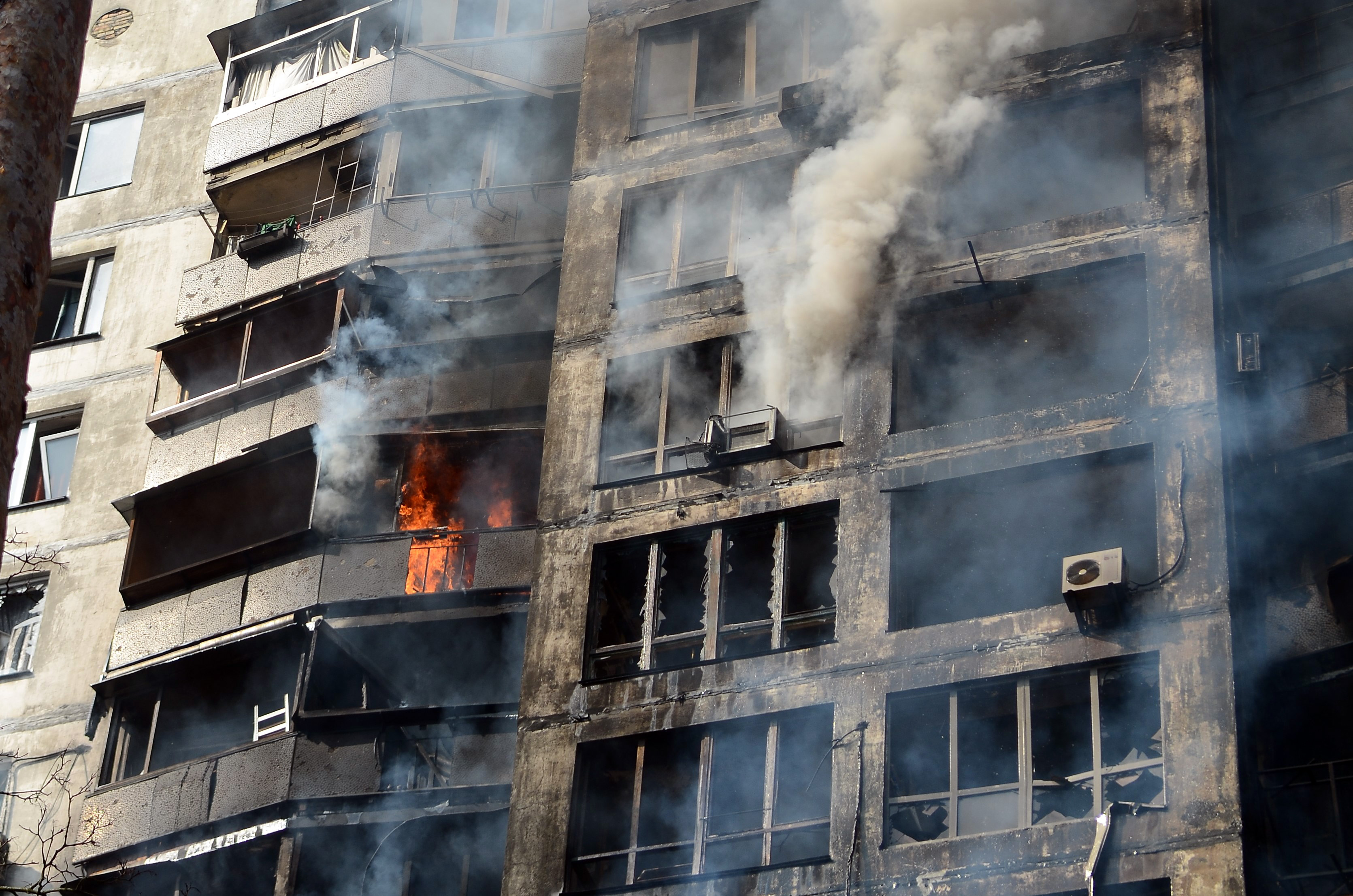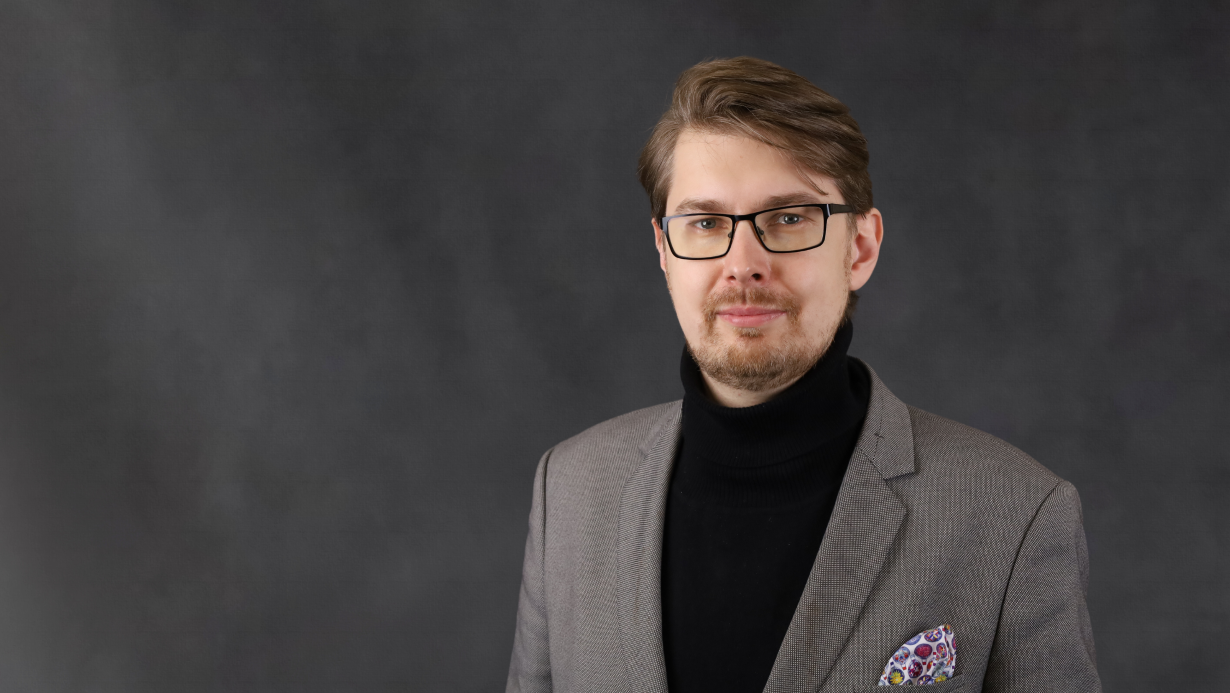Germany on Russia's Invasion of Ukraine
After the start of Russia’s attack on Ukraine, the German government began work on diversifying supplies of energy resources and becoming independent from Russia, which will, however, be a long-term process. In the area of security, Germany is emphasising solidarity with its NATO allies and has announced a decision to significantly increase its defence spending. The war in Ukraine has politically strengthened Chancellor Olaf Scholz, who gained in public opinion polls after announcing a change in direction of German policy.
 Oleksandra Butova/Zuma Press/Forum
Oleksandra Butova/Zuma Press/Forum
How has the war in Ukraine changed German energy policy?
According to the Ministry for Economic Affairs and Climate Action, 55% of Germany’s gas imports, 50% of its oil, and 35% of its coal come from Russia. Gas was originally intended to be a bridging fuel on the German economy’s path to a full energy transition. Due to its high dependence on these materials, Germany opposes an embargo on imports of Russian energy resources, even though it has supported other sanctions. Abruptly abandoning Russian oil and gas would have high economic and political costs. Efforts are underway to diversify the supply of raw materials. On 5 March, KfW bank, acting on behalf of the federal government, signed a memorandum of understanding with the companies Gasunie and RWE for the construction of an LNG terminal in Brunsbüttel. A second LNG facility is to be built in Wilhelmshaven. Alternative oil supply sources are also sought. The main direction of Germany’s energy policy is to accelerate work on new renewable energy sources. In Germany’s case, becoming independent from Russian energy resources will be a complex process during which the development of renewable energy sources will be accompanied by the search for new suppliers and the expansion of energy reserves. The war in Ukraine will not affect plans to close the last operating nuclear power plants by the end of the year. According to the economic and climate ministry, extending their operation would not solve the problem of dependence on raw materials from Russia because nuclear energy meets only 13% of consumer demand. Other factors in favour of closing the plants are the high costs associated with the upcoming deadline for replacing fuel rods in the reactors and concerns about ensuring adequate security against possible cyberattacks.
How might the war in Ukraine affect the German economy?
Before the invasion of Ukraine, Russia was Germany’s fourth-largest non-EU partner in imports and fifth in exports. In addition to energy resources, Germany imported metals and fertilisers and exported mainly machinery, cars, and chemical products. The war and sanctions will change these statistics. Companies such as Siemens, the chemical concern Henkel, the delivery company DHL, clothing manufacturers Adidas, Puma, and Karl Lagerfeld, and automobile companies have withdrawn from the Russian market. Some of them—BMW, Mercedes, and Volkswagen—have also suspended production at factories in Russia.
The war is also affecting German-Ukrainian economic relations. Germany imported grain and metals and components for cars from Ukraine and exported mainly chemical products, machines, and cars. The automobile industry has been particularly affected by the war. Germany imported half a billion euros’ worth of wiring bundles from Ukraine annually. The interruption of these supplies threatens the continuity of car production to an extent comparable to the semiconductor supply problems caused by the COVID-19 pandemic.
The impact of the sanctions on the German economy, though, is estimated to remain limited and could reduce GDP growth by 0.4%. The biggest threat remains the increase in oil and gas prices, which affects both companies and individual consumers, as well as the disruption of supply chains, which particularly hits industry. All of these factors could further reduce Germany’s GDP growth. On the other hand, a radical break with energy suppliers could trigger a recession, which is an unlikely scenario.
How is Germany backing its NATO allies and Ukraine?
On 27 February, Chancellor Olaf Scholz announced a change in Germany’s defence policy at the Bundestag. A special fund of €100 billion will be created and defence spending in the coming years is to exceed 2% of GDP. A tender for the purchase of dual-use aircraft capable of carrying nuclear weapons within the “nuclear sharing” programme, which had been included in the coalition agreement, was resolved. The choice fell on the American F-35 fighters, and the Luftwaffe is also to be supplied with new Eurofighter Typhoon ECR aircraft. These steps indicate a desire to overcome years of neglect of military equipment as quickly as possible. At the same time, it has been announced that work also will be continued on a new generation of German-French-Spanish fighter jets. The policy of deterring Russia within NATO remains a priority. Since the beginning of the war in Ukraine, both Chancellor Scholz and Minister of Defence Christine Lambrecht have emphasised Germany’s full solidarity with its NATO allies and its readiness to defend allied territory. The Bundeswehr is present on NATO’s Eastern Flank. Ground forces are currently in Lithuania and are expected to become part of a newly formed battle group in Slovakia. Luftwaffe aircraft are in Estonia and Romania, and Deutsche Marine warships are operating in the Baltic Sea. Weapons deliveries to Ukraine continue: 1,000 anti-tank weapons, 500 Stinger anti-aircraft launchers, and other equipment have been handed over. A decision was also taken to transfer 2,700 Strela anti-aircraft systems from the resources of the former East German National People’s Army, which indicates the Bundeswehr’s limited stocks and logistical capabilities.
What is the situation of refugees from Ukraine in Germany?
Since the beginning of the Russian invasion, refugees from Ukraine have been arriving in Germany. On 6 March, Minister of the Interior Nancy Faeser announced that Germany would accept refugees from Ukraine regardless of their citizenship. Similar to other EU countries, Ukrainian refugees in Germany are covered by the provisions of the EU’s Temporary Protection Directive, which includes access to housing, healthcare, and the job market. According to statistics from 14 March, 147,000 refugees from Ukraine were registered in Germany. The most difficult situation is in Berlin where about 100,000 people have already arrived. In comparison, during the 2015 refugee crisis, some 55,000 migrants arrived in Berlin. The German capital is the final stop for trains and buses from Poland. Most of those arriving intend to seek shelter with family and friends living in Germany. The increasing number of refugees has forced the federal government to introduce—despite earlier announcements ruling out such a possibility—a mechanism for relocating to other states those people who cannot count on accommodation with their relatives.
What is the public opinion in Germany?
Anti-war and pro-Ukraine demonstrations have been held daily in many cities since 24 February, the day of the invasion. According to a poll conducted on 24-25 February for YouGov, 60% of those surveyed held Russia responsible for the outbreak of the war. In a Deutschlandtrend poll for ARD television on 3 March, as many as 90% of those surveyed said they distrusted that country. The poll results indicate that Russia has suffered considerable image losses in German society. The outbreak of the war has also affected the ratings of the head of government and the entire cabinet. According to a survey carried out by the Forsa centre on 8 March, 60% of those questioned had a positive opinion of Chancellor Scholz’s work, whereas before the outbreak of the war this had been the opinion of 38%, and Scholz himself had been criticised for the lack of a clear political line. In the short term, the popularity of the Chancellor and the government will increase as the public rally around the government in a crisis. In the longer term, the government’s popularity may be undermined by high inflation and the public’s possible fatigue with the effects of the sanctions and even the subject of war.


